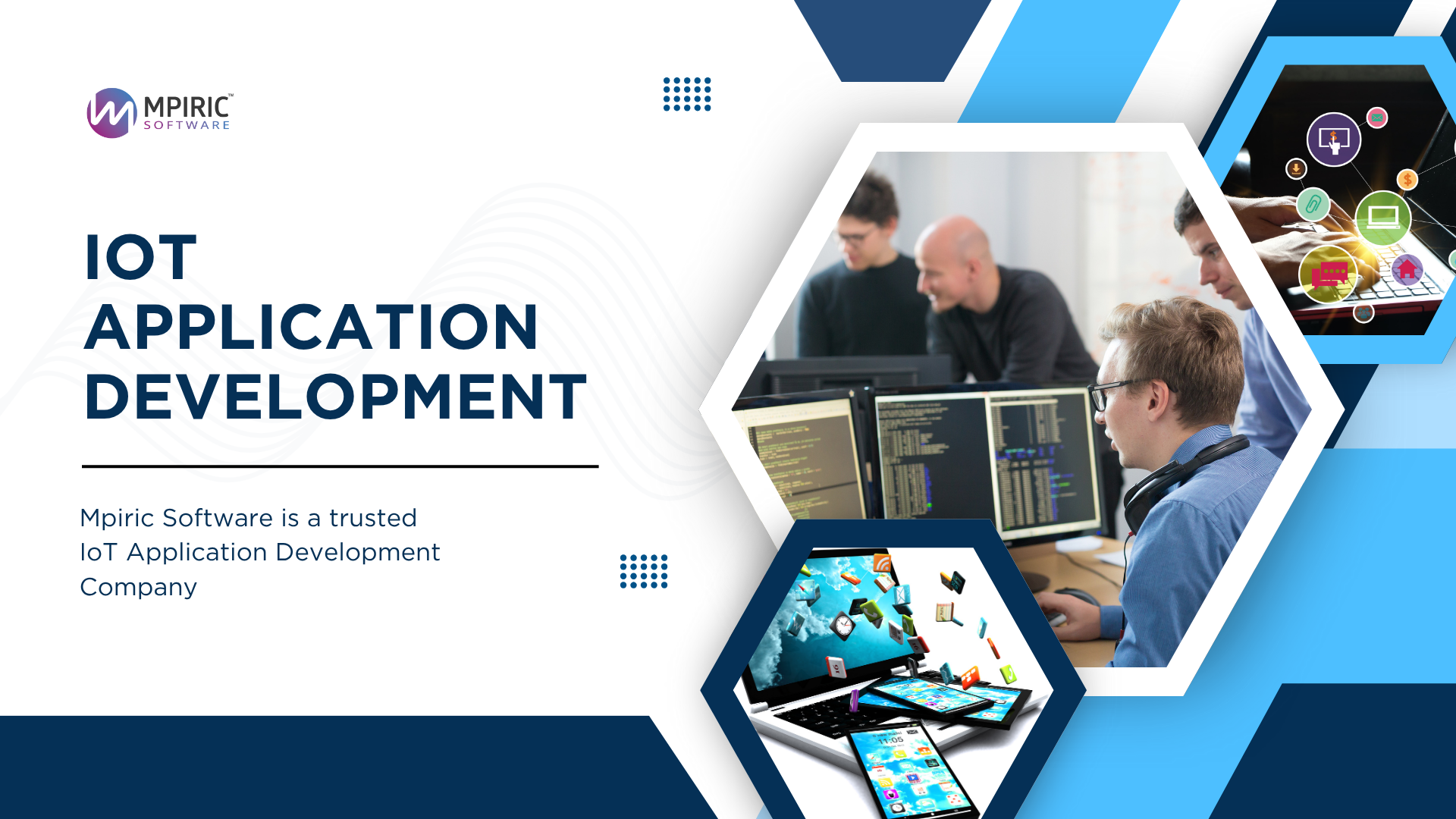Introduction
In today’s digitally-connected world, the Internet of Things (IoT) is no longer a buzzword it’s a game-changer. From healthcare to agriculture, IoT application development is revolutionizing how industries operate, communicate, and innovate.
But what does IoT application development really mean? And why should business leaders and tech innovators care?
Let’s dive into how companies across sectors are using IoT-powered apps to boost efficiency, cut costs, and create smarter, more seamless experiences for their users.
What is IoT Application Development?
At its core, IoT application development is about crafting smart apps that talk to devices, sensors, and networks live and in real time. These apps do far more than just gather data. They analyse it, respond to it, and make intelligent decisions.
Think of a thermostat that adjusts to your routine automatically, or a car that gives you a heads-up when it needs maintenance. These aren’t just cool gadgets they’re smart solutions built on custom IoT platforms that understand context, behaviour, and outcomes.
Why Industries Are Investing in IoT Application Development
Before diving into the top industries, it’s important to understand why companies are pouring resources into:
- Real-time decision making
- Predictive maintenance and alerts
- Remote monitoring of assets
- Cost and energy savings
- Personalized customer experiences
IoT is no longer just for tech giants. Small businesses, startups, and traditional enterprises are also jumping on board to stay competitive.
Top Industries Benefiting from IoT Application Development
1. Healthcare
One of the most impactful applications of IoT is in the healthcare industry. From wearable health monitors to remote patient management systems, Thisis enhancing patient care and streamlining operations.
Key Use Cases:
- Remote diagnostics
- Connected inhalers and insulin pens
- Smart hospital beds
- Real-time health monitoring
Healthcare providers are now able to monitor patients 24/7, which means fewer hospital visits and better long-term outcomes.
2. Manufacturing
The manufacturing sector is rapidly transforming into what’s called “Industry 4.0.” with the, companies are automating operations and minimizing downtime through predictive analytics.
Key Use Cases:
- Asset tracking
- Predictive maintenance
- Production line optimization
- Smart inventory management
These IoT solutions help reduce manual errors and keep the assembly line moving efficiently.
3. Agriculture
Yes, even farms are getting smart. IoT in agriculture also known as smart farming is changing how food is grown and harvested. Farmers use data from soil sensors, weather stations, and connected equipment to make data-driven decisions.
Key Use Cases:
- Soil moisture monitoring
- Automated irrigation
- Crop health analytics
- Livestock tracking
IoT application development in agriculture helps increase yields while conserving resources like water and fertilizer.
4. Transportation & Logistics
IoT has been a game-changer in fleet management and logistics. By integrating sensors into vehicles and cargo, companies can monitor performance, location, and security in real time.
Key Use Cases:
- Fleet tracking
- Driver behaviour analysis
- Real-time route optimization
- Cold chain monitoring for perishable goods
Businesses using these applications see improved delivery times and reduced fuel costs.
5. Retail
In the retail sector, Itis driving personalization and operational efficiency. From smart shelves to automated checkouts, IoT makes both the shopping experience and inventory management smarter.
Key Use Cases:
- Customer behaviour tracking
- Smart shelves and RFID tagging
- Inventory management
- Personalized promotions
Retailers use IoT to boost engagement and reduce shrinkage (theft or lost inventory).
6. Smart Cities
Municipalities are increasingly adopting IoT to improve the lives of citizens. From traffic systems to waste management, city infrastructure is getting connected.
Key Use Cases:
- Smart lighting and energy grids
- Traffic and congestion control
- Environmental monitoring
- Smart parking systems
IoT application development helps cities run more efficiently, reduce pollution, and improve quality of life.
Challenges:
While the benefits are significant, IoT application development comes with its own challenges:
- Data privacy and security
- Device interoperability
- High initial investment
- Constant software updates
However, with the right development partner and proper planning, these hurdles can be managed effectively.
Future Outlook for IoT Across Industries
The Internet of Things iot product development is on a meteoric rise with projections showing the market could top $1.3 trillion by 2030. And with game-changing technologies like 5G and edge computing accelerating alongside it, the opportunities are growing faster than ever.
We’re not just talking about smart gadgets anymore. IoT is evolving into a powerful platform for real-time insight and automation across entire ecosystems. Think air quality sensors feeding live environmental data, or supply chains that run themselves with pinpoint precision.
The takeaway? We’re just scratching the surface of what IoT can do—and businesses that embrace it today are setting themselves up for a smarter, more efficient tomorrow.
FAQs: IoT Application Development
1. What programming languages are commonly used in IoT application development?
Common languages include Python, C++, JavaScript, and Go. The choice depends on the device, platform, and data requirements.
2. Can small businesses afford IoT application development?
Yes. With cloud platforms and scalable solutions, even small businesses can benefit from IoT without breaking the bank.
3. Is IoT application development secure?
It can be, as long as developers follow best practices like encryption, two-factor authentication, and regular updates.
4. What’s the ROI on IoT application development?
While it varies by industry, most companies report reduced costs, increased efficiency, and better decision-making within the first year of deployment.
Conclusion
From tractors in fields to robots on assembly lines, industries everywhere are tapping into the power of IoT application development. But it’s not just about getting devices online it’s about turning everyday operations into smart, data-driven experiences.
And as the need for smarter solutions grows, so does the demand for experts in iot product development, these experts are the bridge between what we build and how we use it turning data into decisions and machines into collaborators.
Whether you’re looking to improve operations, reduce costs, or create entirely new products, IoT application development is the tool that can take you there.


